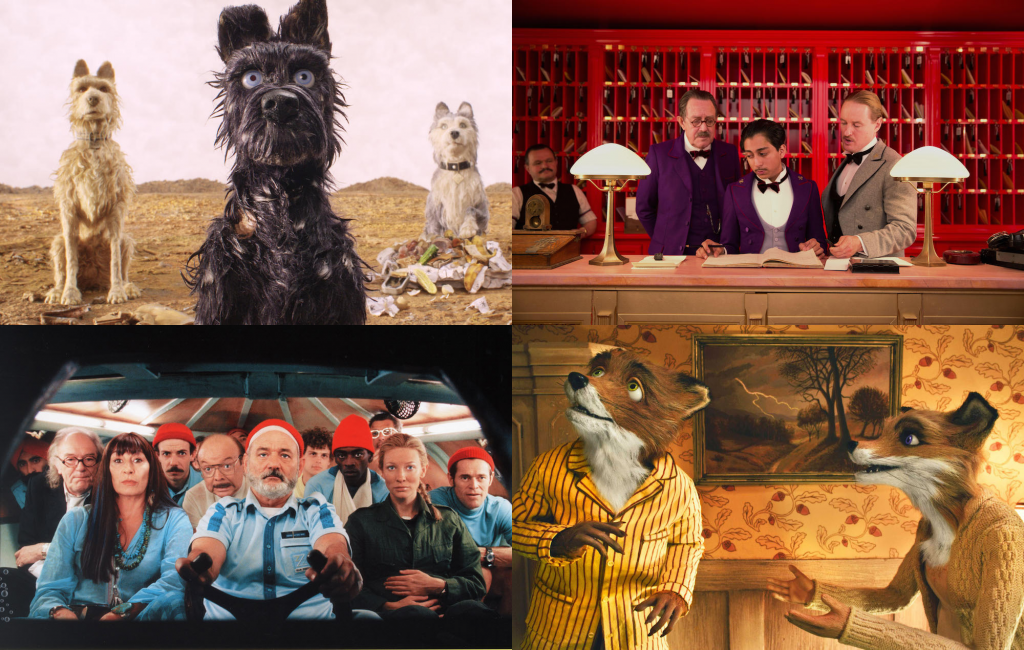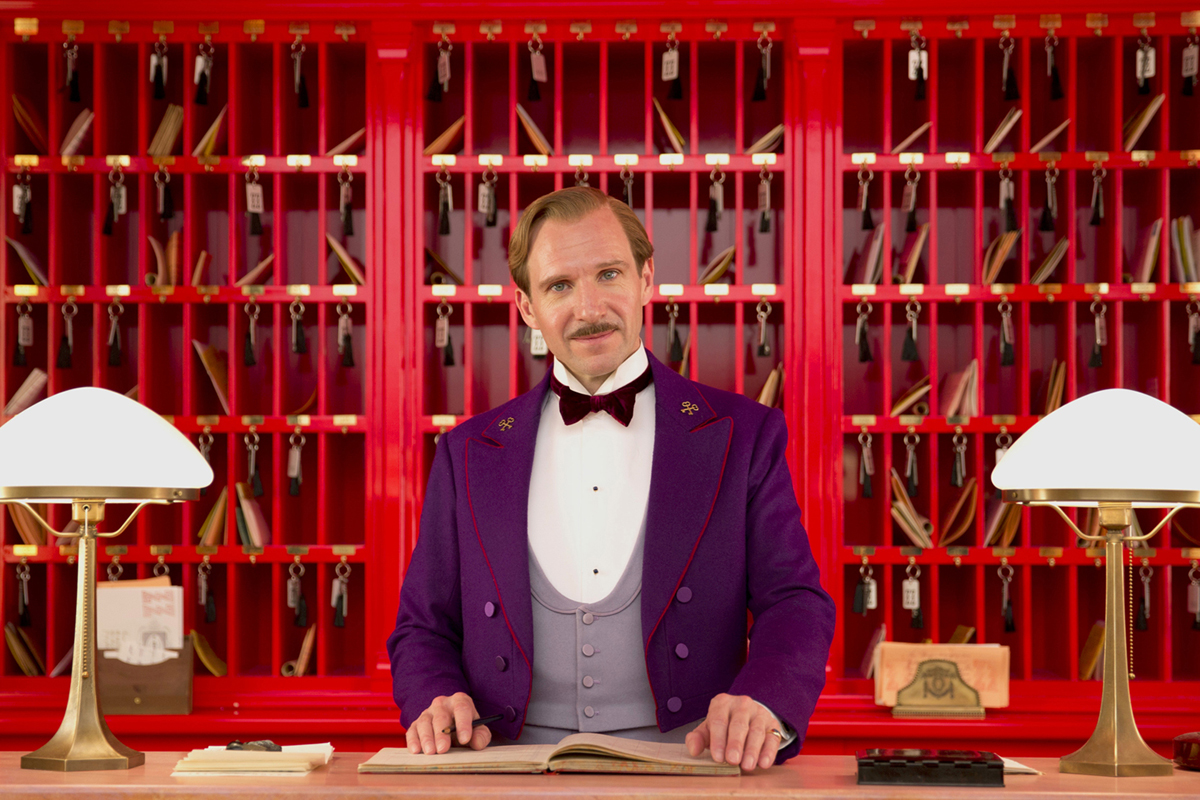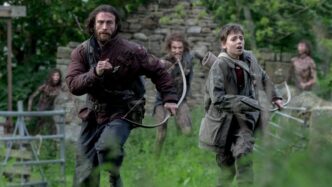I can assuredly use one word to describe Wes Anderson’s works as a director unlike most directors, and the word I would use is ‘picturesque’, because almost every frame in his movies can be seen as a picture within a frame. Wes Anderson’s style might however not cater to the mass and honestly, I thought I would get bored of his movies before I even attempted to try one.
His style heavily relies upon the various assortments of quirkiness, be it in terms of characterization, storytelling, music or even the setting. I personally love his neglect of close up shots unless absolutely necessary, as he relies heavily on wide shots. The movement or transition from one shot to another is also very linear as opposed to the usual scroll or swipe of the camera. It feels as though you move from one virtual picture to another. It becomes presumably evident that he is a director that pays attention to details when you look into any of the frames in his movies.
From the colour scheme of every little object to the undeniable presence of a pulsating backdrop at all times, Anderson flaunts vibrancy every step of the way. The filters and even the fonts used throughout his movies scream his name.
Moonrise Kingdom was the first Wes Anderson movie I had seen and it was so heartfelt that I went back to watch some of his other works whilst keeping an eye out for his work in the future. The Grand Budapest Hotel, however, is possibly my favorite Wes Anderson movie. It even allowed me truly appreciate Ralph Fiennes as a comedic actor. The story of a sly hotel manager somehow turns fun and exhilarating as the story progresses and all hell breaks loose. The constant sharp wit is also a continual factor in all of his movies. He is also an advocate for misunderstood characters or characters in turmoil. The Royal Tenenbaums is a story of a family with problematic tendencies where actors like Bill Murray, Owen Wilson, Gwyneth Paltrow and Ben Stiller really get to flex their acting chops in the movie. Moonrise Kingdom can probably be tagged as a cult classic now because people who repeatedly watch the story of the two young naïve yet mature lovers, seem to want to watch it because of how much they love the movie. The grandest setting in his movies are also different from one another, even when Wes takes his stories to other countries like India or Japan, the heart and warmth of their respective cultures are touched upon respectfully.

The kinds of genres he tackles vary from as a whole even though Wes Anderson adheres to certain little tropes religiously like the redemption of bond between two eccentric characters, the struggle of determining one’s feelings, the dilemma of acknowledging the truth about oneself and so on. The concept of discovery or discovering is a common aspect in almost all of his works. Even when you read the summary of his stories you will find at least someone looking for something. His vivacious frames are more than capable of ensnaring the audience’s attention until the plot takes a hold of the very attention until the end.
Wes Anderson has a tendency to work with actors he is used to working with and some of these actors are, Bill Murray, Owen Wilson, Adrien Brody, Jason Schwartzman, Luke Wilson, Anjelica Huston, Willem Dafoe, Jeff Goldblum, Edward Norton and Tilda Swinton amongst others. His upcoming movie The French Dispatch is one of the 2020 movies I’m looking forward to, he works with Timothée Chalamet in the movie and after watching the movie I instantly felt that Timothée will probably become one of Anderson’s go to in the future because he fit like a glove in the picture.
Wes Anderson is a masterful auteur with the emphasis on effervescence and photography and that is just it.







